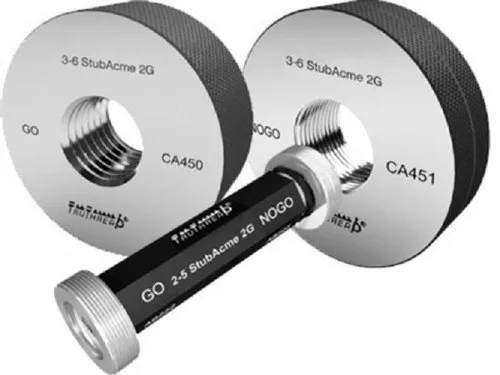Within the realm of component manufacturing, the selection of a suitable thread gauge and Metric tap supplier holds substantial influence over project outcomes. A crucial aspect of this decision-making process involves recognizing the diverse categories of suppliers prevalent in the industry. Broadly speaking, these suppliers can be categorized into three main groups: manufacturers directly selling to customers, stockists offering products, and sourcing agents who neither manufacture nor stock. Gaining clarity on the nuances that differentiate these supplier categories is paramount to making well-informed decisions that balance both cost considerations and product quality.
Directly purchasing from manufacturers offers distinct advantages. Firstly, it often translates to a price advantage. By eliminating intermediary layers, buyers can access products at a more competitive rate. Manufacturers, being the originators of the products, can extend cost savings directly to the buyers. Moreover, this direct connection provides a level of quality assurance. Buyers can have confidence in the authenticity and reliability of the products, knowing they come directly from the source.
On the other hand, stockists play a crucial role in the supply chain. These suppliers purchase goods in bulk from manufacturers and then sell them to retailers or end-users. While they may not have the cost advantage that manufacturers can offer, stockists provide convenience. They maintain ready-to-ship inventory, reducing lead times for buyers. This quick access to products can be especially beneficial for those with urgent or unpredictable project requirements. However, they may not be able to handle custom requirements of thread gauges and thread taps.
Sourcing agents, the third category, operate differently. They neither manufacture nor stock products. Instead, they act as intermediaries between buyers and manufacturers. While this might introduce an additional layer in the supply chain, sourcing agents can be valuable in connecting buyers with suitable manufacturers. They leverage their network to find the most fitting supplier for specific requirements. However, it is important to note that sourcing agents do not have direct control over manufacturing or stock, which can impact factors like pricing and immediate product availability.
Amidst these categories, buying directly from manufacturers emerges as a prudent choice for those seeking a balance between cost-effectiveness and quality assurance. The direct link with the source facilitates clearer communication, reducing the chances of misunderstandings or errors in product specifications. This direct engagement also enables buyers to establish long-term relationships with manufacturers, fostering a partnership built on trust and reliability.
While stockists and sourcing agents have their roles in the supply chain, the advantages of purchasing directly from manufacturers align closely with the goals of many buyers. Price advantage and quality assurance become pivotal factors, especially in industries where precision and reliability are paramount. This approach not only streamlines the procurement process but also ensures that buyers are directly connected to the core of production, allowing for better control over product specifications and quality standards.
Each category comes with its own set of advantages and considerations. For those prioritizing cost-effectiveness and quality assurance, buying directly from manufacturers emerges as a strategic choice. By doing so, buyers can forge direct connections with the source, reaping the benefits of competitive pricing and unwavering quality standards that are fundamental to successful manufacturing endeavors.




